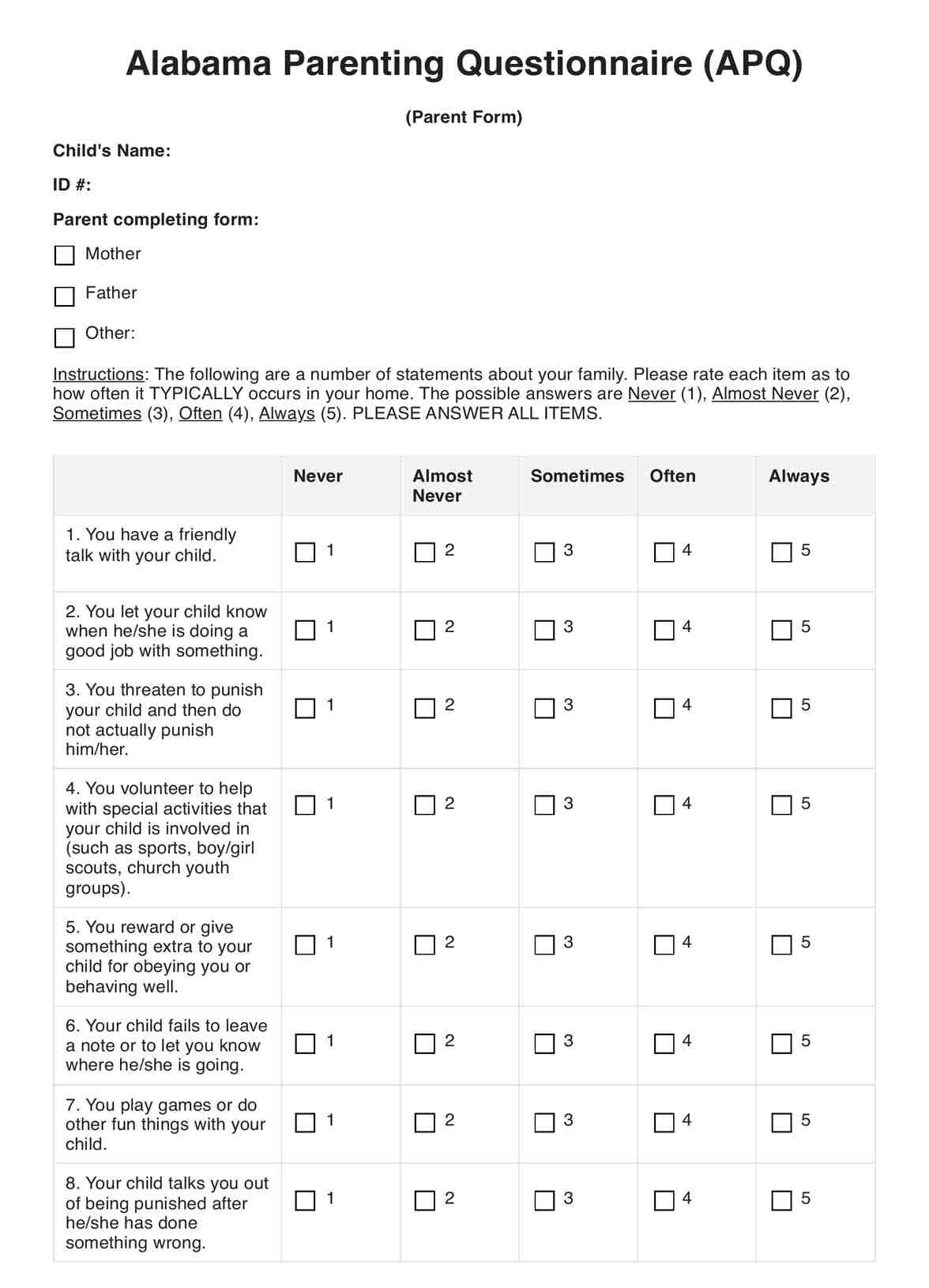Researchers, therapists, school psychologists, and family counselors often use the Alabama Parenting Questionnaire.

Alabama Parenting Questionnaire
Explore our in-depth guide on the Alabama Parenting Questionnaires, understand their utility in child behavior management, and download a free PDF sample.
Use Template
Alabama Parenting Questionnaire Template
Commonly asked questions
The APQ is used to assess child behavioral problems, research on parenting behaviors, and evaluate parenting interventions.
The APQ is a self-report measure where respondents read each statement and select the response that best indicates how often the behavior occurs in their household.
EHR and practice management software
Get started for free
*No credit card required
Free
$0/usd
Unlimited clients
Telehealth
1GB of storage
Client portal text
Automated billing and online payments











